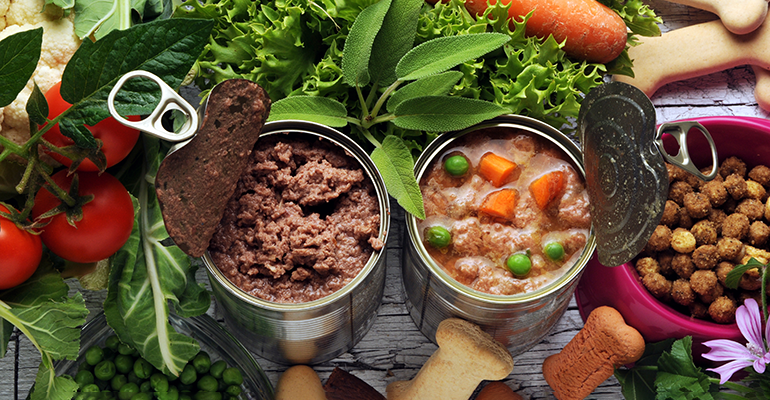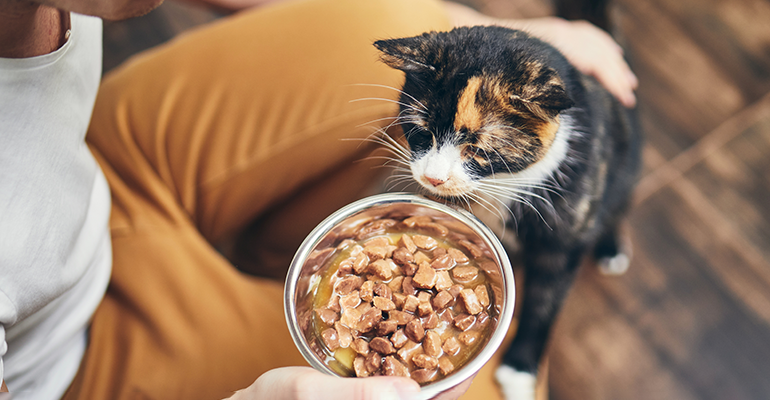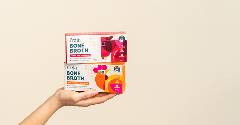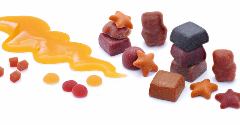News
Plant-based could be the way forward in pet food
25 May 2023
Growing numbers of pet owners are choosing plant-based food for their pets for health and sustainability reasons, according to ProVeg, with many products containing healthy wholefood ingredients like kale, chia, beetroot, and broccoli.
As more people commit to treating their pets like members of the family, the pet food industry has grown red-hot—not only in demand for higher quality pet food, but consumers are also adopting plant-based diets for their furry friends.

Just as they do with their own food, consumers have started paying more attention to the ingredients in the pet food they buy, wanting only the best for their pets. As a result, the pet food industry is projected to be worth about $147 billion in 2023, according to data from Statista.
And an interest in plant-based pet foods has grown significantly, particularly for dogs. This has inspired pet care brands to innovate and offer products that follow human food trends like vegetarianism, veganism, and flexitarian diets.
Humanising pets and their diets
More so-called pet parents are open to having plant-based protein sources in their pets’ diets, usually starting out by introducing a hybrid or flexitarian diet. They make these choices for their pets’ health, for sustainability and for taste.
This directly parallels how consumers are reconsidering their own food choices. Flexible, hybrid diets are increasingly popular with people looking to test out more plant-based foods before fully committing, and they are now extending this same approach to their pets.
“Many people with dogs are actively switching to more plant-based foods to improve the health of their pets. However, some pet parents are wary of plant-based foods, with misconceptions that assume that plant-based diets ‘lack’ vital nutrients,” said food awareness organisation ProVeg International.
‘Feed your pets the way you feed yourself’
The humanisation of pets has pet owners seeking out products with functional health benefits, natural and organic ingredients, minimal processing, protein, antioxidants and freshness, according to ProVeg.
 © AdobeStock/Chalabala
© AdobeStock/Chalabala
“In light of this, we are increasingly seeing more manufacturers adding nutrient-dense superfoods to plant-based dog-foods – you will start to see more wholefood ingredients like kale, chia, beetroot, apples, broccoli, and pumpkin added to ingredient lists,” ProVeg said.
Other human food trends that have started carrying over to pet food include “free from” claims, ingredient origin statements, seasonal and limited edition items, and human-grade ingredients.
Plant-based pet food brand Bramble is leaning into this humanising approach, even using the tagline “feed your pets the way you feed yourself.” Wild Earth similarly offers vegan pet food that is high in protein and contains superfood ingredients, and they claim their products help dogs “overcome their allergies.”
Key factors for emerging pet brands
Pet care brands need to dig deep and understand the trends shaping the industry so they can determine how they fit into its future. Plant-based ingredients are just one thing affecting purchasing habits.
According to data from NielsenIQ, pet food prices increased by an average of $0.30 in 2022, putting a squeeze on pet owners’ budgets for trying new products or going the extra mile.
“This is the largest jump seen in the past five years and one that is concerning for both brands and consumers alike. As the cost per item increases, consumers are likely to cut back on their total basket, limiting pet brands’ ability to sell multiple SKUs per transaction,” NielsenIQ said.
 © AdobeStock/New Africa
© AdobeStock/New Africa
With consumers spending less and not branching out as much because of higher prices, brands are optimising and reducing their assortment. They are drilling down on exactly what their customers want with data and analytics, and working to make their most popular products as high quality as possible.
Next on the horizon: Personalised nutrition for pets
“Today’s consumers are looking for products that are personalised to their unique diets and health needs. Just as with human food, pet owners are increasingly seeking out customised or personalised diets for their pets,” NielsenIQ said.
This means brands are offering more tailored diets and supplements for specific pet needs. And big retailers especially are investing and innovating to align with these needs.
Amazon’s dog and cat food brand Wag contains meat but claims its products are full of “key ingredients” important for pets, without added colors, grains or artificial additives. Target’s private label pet care brand Kindfull is positioned as a healthier option for pets at a lower price with “plant-derived ingredients.”
Related news

Bone broth: From old-fashioned to en vogue
24 Nov 2025
OXO’s entry into bone broth has turned the spotlight on this small but high-performance category – and there is still scope for growth, especially in the area of GLP-1 support.
Read more
Matcha madness: Why green is this year’s hottest colour
19 Nov 2025
Five years ago, it was a struggle to find matcha outside of Japan. Now it seems to be popping up everywhere, from coffee shops to supermarket shelves.
Read more
How younger consumers are redefining ingredient choices and rejecting brand loyalty
18 Nov 2025
Gen Z and millennial consumers’ preferences for transparency, functionality, and purpose are “redefining the very nature of consumption itself”, says SPINS.
Read more
Hybrid formats and flexible positioning to disrupt category norms in 2026
17 Nov 2025
Trend forecasters expect food and drink to move more fluidly across occasions, functions, and formats as consumers seek versatility, novelty, and convenience.
Read more
Empowering innovation in fortification and colouration
13 Nov 2025
Divi’s Nutraceuticals offers a large portfolio of innovative, high-quality ingredients for foods, beverages, and supplements, with bespoke solutions and expert support for product success.
Read more
Predictive maintenance redefines powder mixing reliability
13 Nov 2025
Mill Powder Tech's smart control systems harness real-time data to help the food and biotech sectors achieve zero downtime and smarter output, alongside rigorous GMP standards and ambitious ESG goals.
Read more
From fruit to functional solutions: Meet Paradise Fruits at Fi Europe in Paris
13 Nov 2025
Paradise Fruits Solutions and Paradise Fruits Health will showcase their combined expertise in delivering innovative, fruit-based solutions to the food and beverage industry at the upcoming Fi Europe trade show (2-4 December 2025, Paris).
Read more
Danone highlights digestive health as potential ‘tipping point’ for food industry
13 Nov 2025
Danone is betting on a food industry “tipping point” that will bloat the market for healthy products, particularly those related to gut health.
Read more
Bord Bia presents Irish dairy ingredient suppliers at Fi Europe
6 Nov 2025
Dairygold Co-operative Society, The Carbery Group, and Ornua Co-operative: Meet with sustainable producers of Irish dairy ingredients at Food ingredients Europe 2025, Hall 7.2 Stand M18.
Read more
Ingredient quantities mislabelled on popular protein bars, independent tests show
5 Nov 2025
Some popular protein bars contain more fat, carbs, and/or sugars than claimed on their labels, independent nutrition testing reveals.
Read more